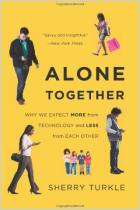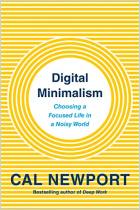Sherry Turkle – one of the foremost experts on the impact of technology on culture and psychology – argues persuasively that technology should augment your life, not control it. Conversation and human connection, she maintains, have deteriorated. We lose our human skills. We avoid eye contact and with that the ability to read each other’s emotions. As you read, count how often you look at your phone and how many pages you can absorb without distraction. See if you can focus for six minutes. Turkle may convince you to deprioritize social media, email and texting so you can reclaim conversation and focus at home and at work. getAbstract recommends her thoughtful overview to anyone in the workforce, especially parents and teachers.
An Insidious Presence
At home and at work, even as you sleep, your devices – the smartphone or tablet – attach to you and surround you. Their apps monitor, buzz, beep and ring at you, and even when they don’t, you can’t resist their allure. Engineers and designers have made email, Facebook, Instagram, Twitter, Fitbits and other tools addictive. They reward you through the neurochemicals you experience when you use them. They give you the illusion of accomplishment and productivity, and keep loneliness at bay.
No wonder you ignore your children at home, your colleagues at work, your relationships with friends and lovers and, ultimately, yourself. Even during the best movies and most engaging presentations, you can’t resist your phone. At work during important meetings – for example, Senator John McCain once played poker on his phone during a Congressional hearing – you text. Not even intimate relations can compete with the phone.
The costs, though not immediately obvious, include kids who can’t converse or relate in person and who exhibit little empathy. In organizations, isolation leads to declining morale, less creativity, little collaboration...


















Comment on this summary or 开始讨论